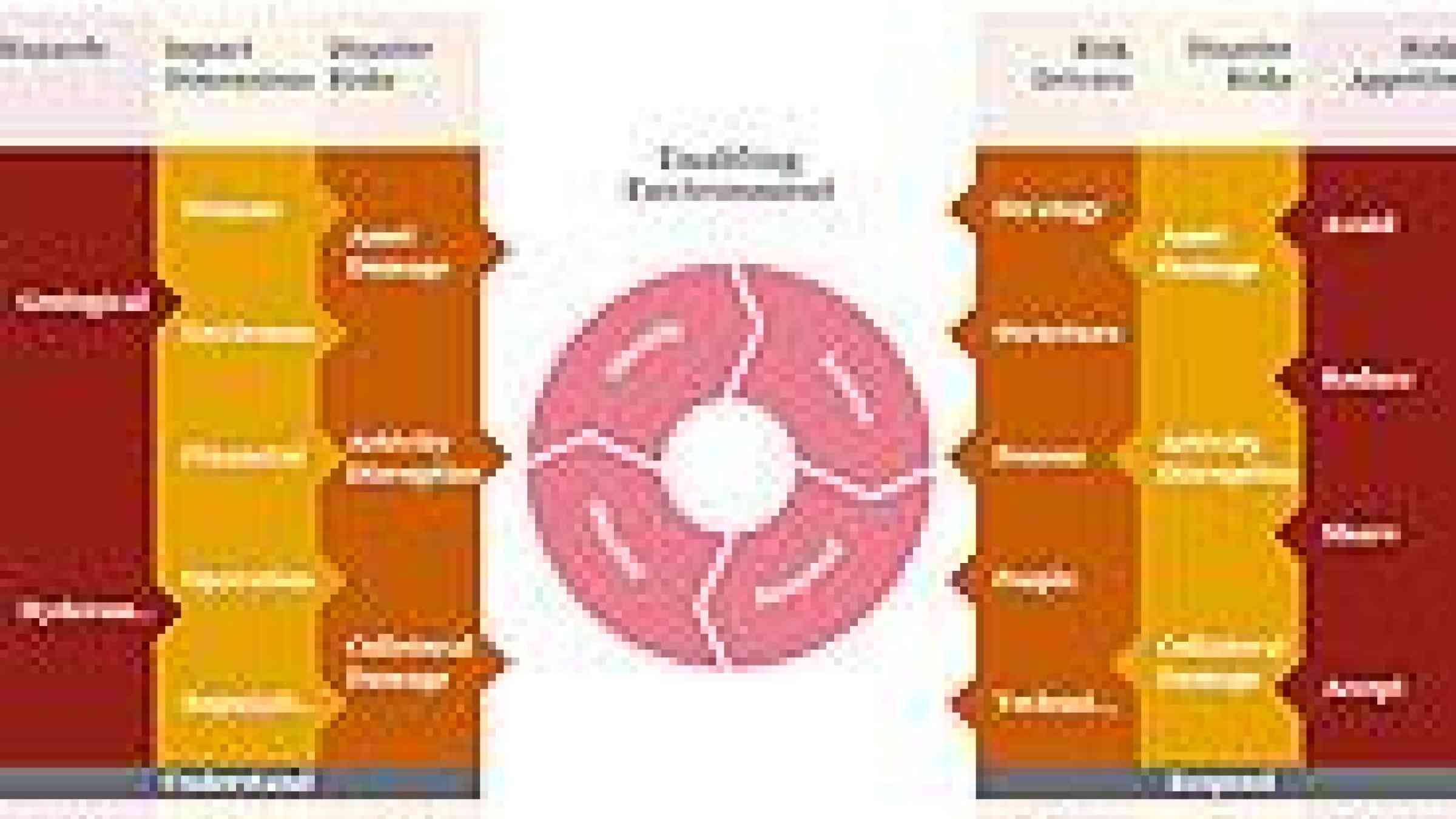UK businesses urged to tackle disaster risk reduction in new UN/PwC led initiative

A new report by the UN International Strategy for Disaster Reduction (UNISDR) and PwC warns large multinationals’ dependencies on international supply chains, infrastructure and markets poses a systemic risk to ‘business as usual’.
Last week, UN Secretary General Ban Ki Moon described economic losses from disasters as “out of control”, after a separate report was released (GAR13) showed mounting losses this century from catastrophic events topping $2.5 trillion. Direct losses from floods, earthquakes and drought were reported as under-estimated by at least 50%. Disaster risk was described in the GAR13 as ‘a new multi-trillion dollar asset class’.
The UNISDR/PwC report Working together to reduce disaster risk examined disaster risk management approaches and experiences in 14 leading global businesses, and was launched as part of a new initiative led by UNISDR and PwC to link private sector businesses of all sizes in disaster planning.
Businesses taking part in the report undertook a pilot assessment of their risk management activities which showed that while good practices existed for disaster risk reduction for corporate-owned assets, the level of understanding and ability to manage risks in local supply chains overseas was far lower.
Celine Herweijer, partner, PwC sustainability & climate change
“Globalisation means disaster doesn’t stop at the factory gate or the office door, and British businesses can’t stick its head in the sand and hope it won’t affect them.
“Whether the disaster is here or overseas, damage to the infrastructure, utilities, transport infrastructure or the neighbourhoods where employees live, interrupts business and imposes additional costs. The British high street or business park may seem safe from the headline disasters we see internationally, but in a global supply chain, suppliers and partners hit on the other side of the globe, bring the impact right back home.”
Multinational businesses in the UK have witnessed increasing numbers of occasions of indirect impacts of natural disasters amplifying losses globally through commodity price rises, supply chain disruption, workforce dislocation, asset damage, and lost or damaged infrastructure. The report highlights how:
• Even businesses with established risk management systems in place need to do more to protect themselves fully against natural disasters;
• Small more vulnerable enterprises in developing economies, do not have the capacity to strengthen their risk management and overall supply chain resilience alone;
• Global businesses need to consider shared risks with suppliers, SMEs and local businesses in their supply chain, particularly in developing and emerging economies, where disproportionate economic and human impacts of disasters are being felt;
• Some large businesses rely on the insurance industry alone for risk assessments, with most having only limited access to disaster risk information on which to base investment decisions.
Celine Herweijer, partner, PwC sustainability & climate change
“The businesses we interviewed understand they need to do more than just do business in the communities they are working in. Collaborating on disaster risk management is a strong platform on which to create local partnership with governments and cities, and demonstrates that business is having a full and positive impact on society.”
The new PwC led UNISDR initiative, facilitates the involvement of private and public sector organisations of all sizes and in all sectors, to take steps on disaster risk reduction, offering an assessment tool to help companies identify where their companies’ plans stand, and where gaps exist in the management of disaster risk.
Margareta Wahlstrom, UN Special Representative of the Secretary-General for Disaster Risk Reduction said:
“While many private sector players are demonstrating an improved understanding of how their operations could be affected by natural hazards, there is a huge need for businesses worldwide to play a more central role in reducing disaster risk. The economic losses speak for themselves.
“The other side of the equation is that disaster risk management is a business opportunity. For example, the development of new crop insurance products or more disaster resilient infrastructure are major emerging needs in response to extreme weather events, rapid urbanization and growing exposure to disaster risk.
“This is ultimately about improving safety for all, and the security of supply chains and economic growth, and this initiative will provide a common platform for understanding disaster risk management in the private sector across businesses of all sizes, in any industry or sector.”
Notes to Editors:
1. UNISDR and PwC have established an initiative to facilitate the involvement of private and public sector organisations who are ready and willing to take steps on disaster risk reduction. The initiative harnesses expertise from both public and private sectors, creating a platform to link the activities of both. The UNISDR / PwC Disaster Risk Management Framework provides concrete actions and practical guidelines driven by a standard risk management process to help business understand what a disaster will mean for their business, and how they can plan and respond.
2. The report and launch form part of the UN’s Global Platform for Disaster Risk Reduction (19-23 May) bringing together leading businesses and international policy makers in Geneva.
3. The UNISDR has previously established a private Sector Advisory Group (PSAG). PSAG is an invitation-only group. A majority of the members are from the private sector with some members also from foundations and governments. As an advisory group, the PSAG represents the wider private sector and works with UNISDR to address disaster risk reduction in the sector. This group has contributed to this work.
4. Annual economic losses from reported natural hazards were up from $10bn in 1975 to $400bn in 2011 (Source: EM-DAT, OFDA/CRED International Disaster Database)